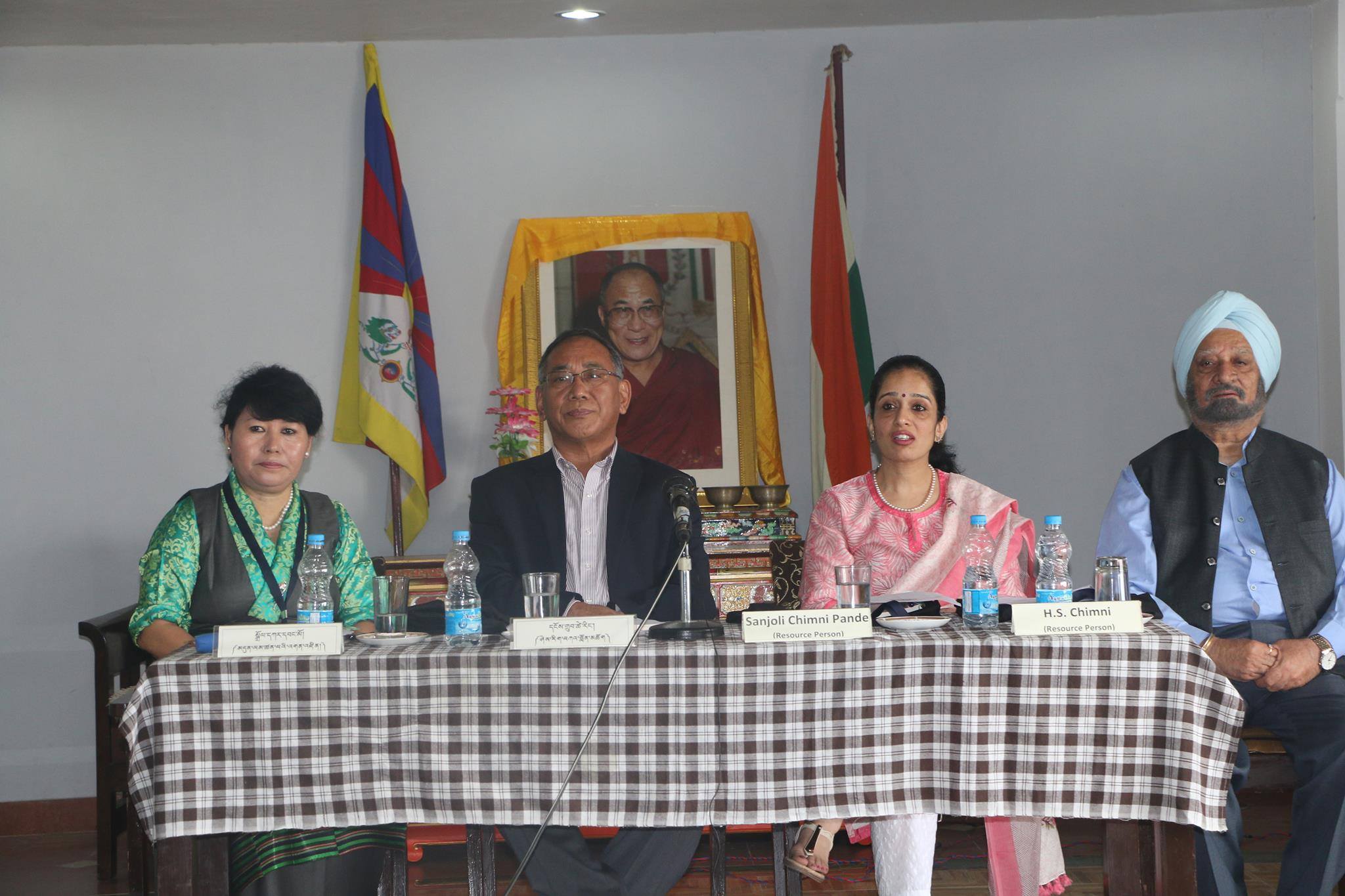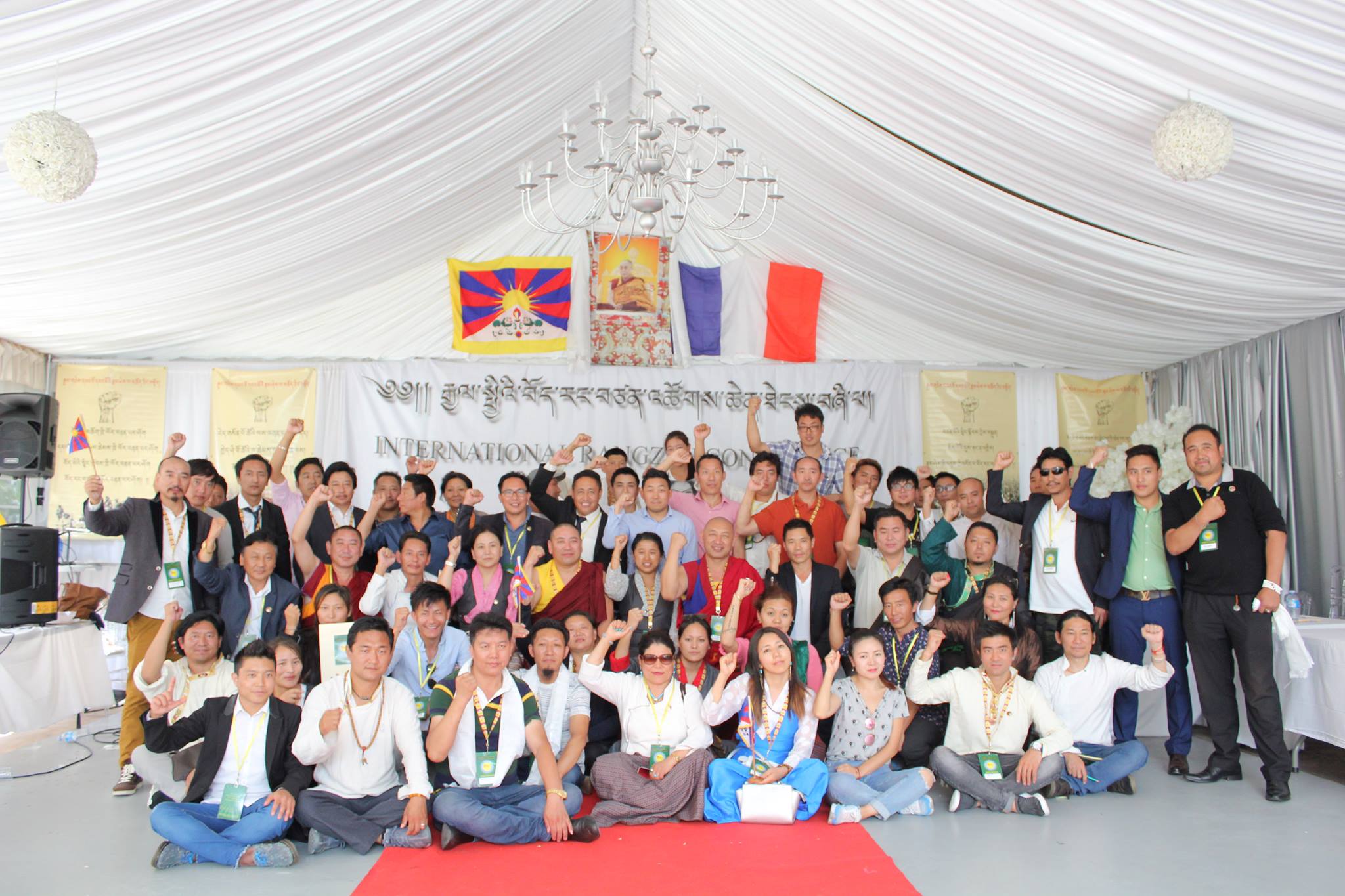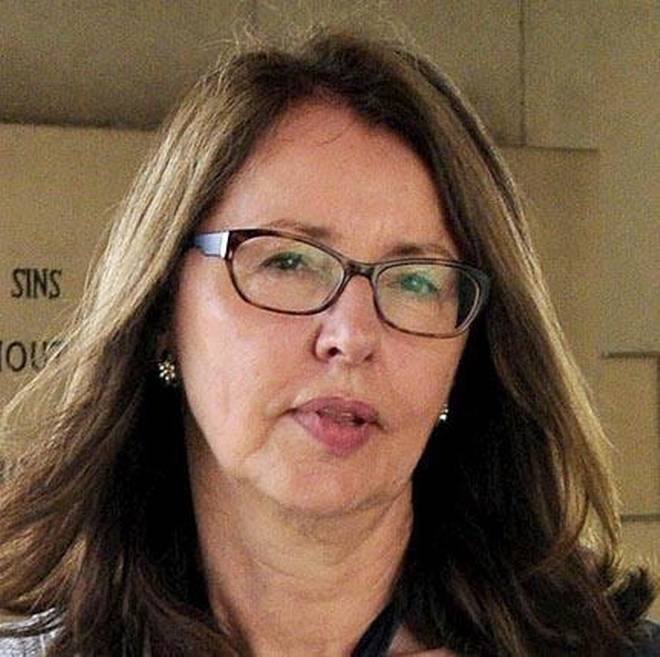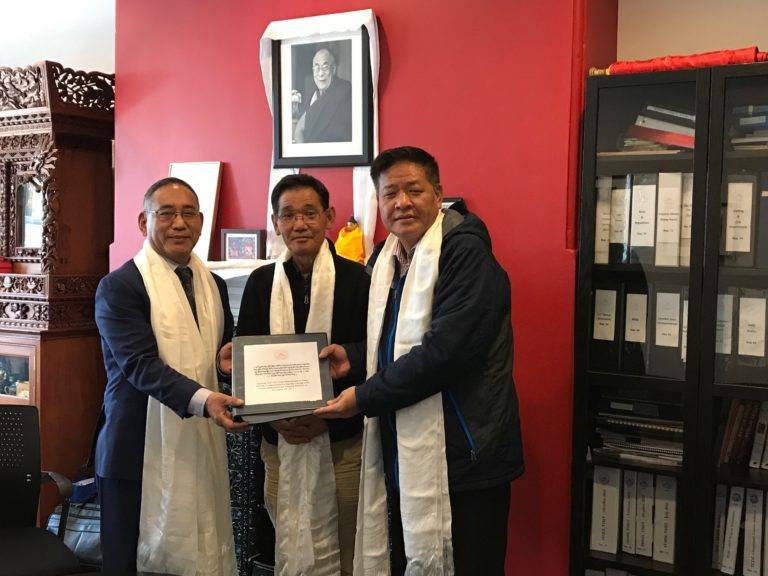Department of Education begins two-day workshop on ‘Alternate Discipline Technique focusing on Emotional Intelligence’
By Lobsang Tenchoe
DHARAMSALA, August 28: The Guidance and Counselling section of the Central Tibetan Administration’s (CTA) Education Department has started a two-day workshop on ‘Alternate Discipline Technique focusing on Emotional Intelligence’ today at Nyatri Hall, Central Tibetan Secretariat.
 Education Kalon (Minister) Ngodup Tsering of the CTA attended the first day of the two-day workshop as the Chief Guest. The workshop is being attended by 30 Tibetan school principals and counselors. The department has specially invited Mrs. Sanjoli C Pande, Director of Chandigarh based Mind and Heart Foundation and Captain H.S. Chimni, co-founder of the foundation, Chandigarh as resource persons.
Education Kalon (Minister) Ngodup Tsering of the CTA attended the first day of the two-day workshop as the Chief Guest. The workshop is being attended by 30 Tibetan school principals and counselors. The department has specially invited Mrs. Sanjoli C Pande, Director of Chandigarh based Mind and Heart Foundation and Captain H.S. Chimni, co-founder of the foundation, Chandigarh as resource persons.
Kalon Ngodup Tsering began his address by thanking the father and daughter duo for coming to the conference in spite of the problems in Haryana and Punjab.
“Discipline is necessary for security and development not just in schools but every where else as well. The law of the land as well as our schools prohibit corporal punishment, therefore the workshop on alternate discipline technique focusing on emotional intelligence is very important and a step forward,” Kalon Ngodup Tsering said.
“All of us adults have very huge expectations from the children. We expect them to navigate all the complexities of their daily life at a time when their brains are just beginning to develop. So, while they are completely focused on doing what we tell them and what we deem fit and right for them to do, we adults are not able to do that on several opportunities,” Mrs Sanjoli C Pande, Director of Mind & Heart Foundation, said reflecting on past conversations she had while training over ten thousand school heads, principals, teachers and counsellors from as many as 7-8 hundred schools.
“Emotions, cognitions and behaviour are so deeply intertwined, its not something new and we all know it, and yet when children sometimes misbehave in the class room, we can’t look beyond that surface level behaviour because it troubles us and we want to do something about it. If you really want to help children, dig deeper,” Mrs Sanjoli concluded.






